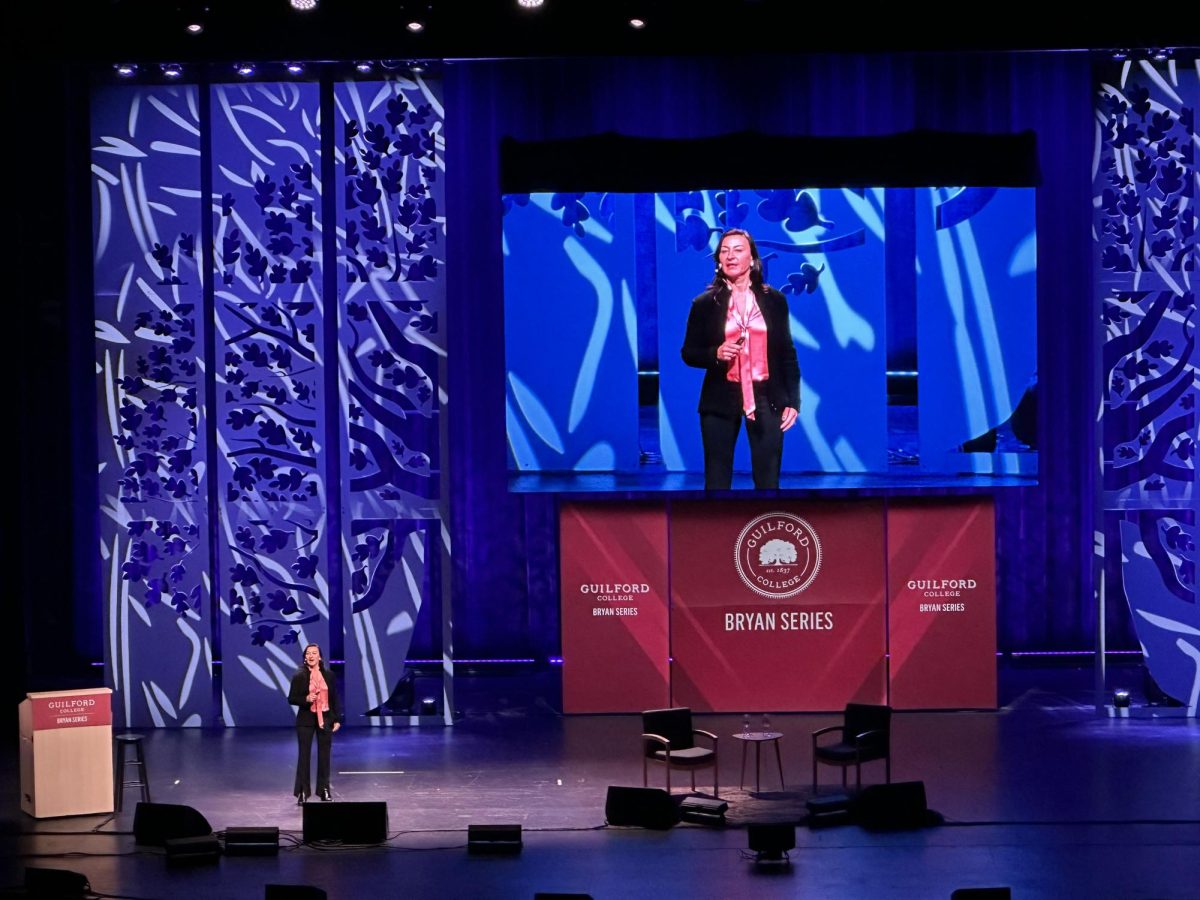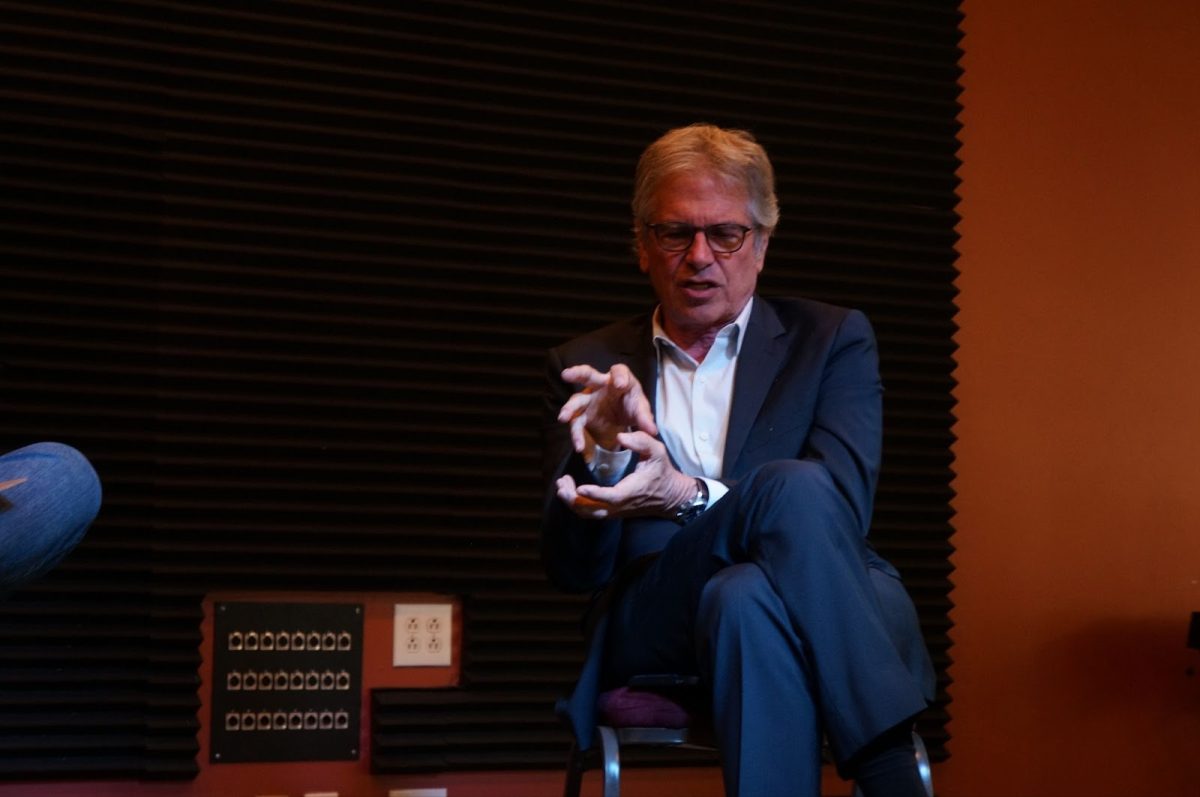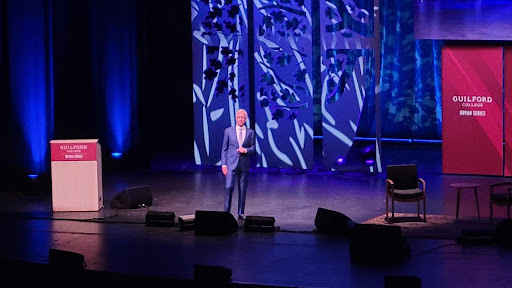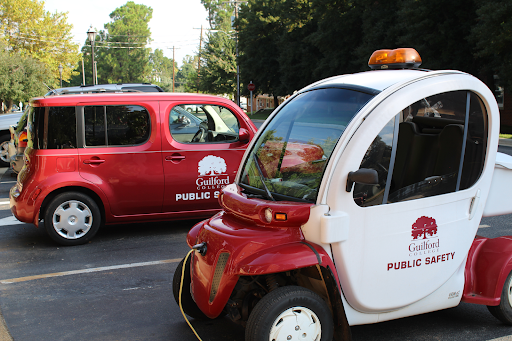What does leadership look like in Quaker education?
From Nov. 8–10, representatives from Quaker schools across the country grappled with this question during the Quaker Educational Leadership Symposium.
Hosted by the Friends Center at Guilford College, the Alumni Relations Office and New Garden Friends School, the symposium, “Mission-Driven in a Data-Driven World,” consisted of different events that all discussed leadership in Quaker education.
Considering that New Garden Friends School is getting a new head for the first time in a quarter century and Guilford’s own search for a new president is on the radar, the symposium’s timing was especially relevant.
“It seemed like a propitious time to evaluate … leadership required to maintain Quaker education,” said Max Carter, director of the Friends Center and campus ministry coordinator.
The weekend events ranged from presentations to panels, from fellowships to pot lucks and from breakfasts to suppers — all focusing on the key question.
“My objective is to listen to and consider … what Quaker leadership means in the context of the world we live in,” said Renee Prillaman, assistant principal of teaching and learning at Carolina Friends School.
On Friday night, Margaret Benefiel, Ph.D. and author of “The Soul of a Leader,” shared the experiences of upholding two seemingly contradictory identities: being a leader and being a Quaker. Specifically, she discussed this in relation to analytical research data and the introspective elements of Quakerism.
The Saturday night panel of current and former heads of Quaker schools was another highlight. Members deliberated many tough questions, including the role of consensus in decision-making, finances in times of crises and how to implement equal gender and racial recruitment.
But what does a Quaker education mean exactly?
“A Quaker education is transformational and … holistic,” said Carter. “It’s not just the transformation from a mind … to a critical thinker … but it’s also a transformation spiritually and emotionally … (in)to persons who can attempt anything, because they know they have a community that accepts them, mentors them and supports them.”
First-years Sadie Hunter and Phoebe Hogue-Rodley shared their own insights about Quakerism in higher education.
“As a Quaker, for me, learning is spiritual,” said Hunter.
Hogue-Rodley added, “I was drawn to Guilford by the idea of an intentional community … with shared values.”
“Intentional community” is appropriate in describing the event considering how it unified Quaker educational communities from around the country, brought Guilford closer to the New Garden Friend’s School and drew in graduates.
“We wanted to create the space for alumni to come back and talk about their experiences … and also remind the alumni that they are stakeholders, and (we) value their participation,” said Assistant Director of Alumni Relations Miriam Biber ‘02, who was on the event’s planning committee.
Current President and Professor of Political Science Kent Chabotar discussed the importance of a leader’s interaction with the surrounding community in an interview with The Guilfordian.
“(The incoming president should take) the first six months to listen; don’t try to issue a vision before you know the place, and involve people when you make decisions,” Chabotar told The Guilfordian.
If it takes a village to raise a child, then perhaps it takes a whole school — faculty, alumni, staff and students — to make a college president.






